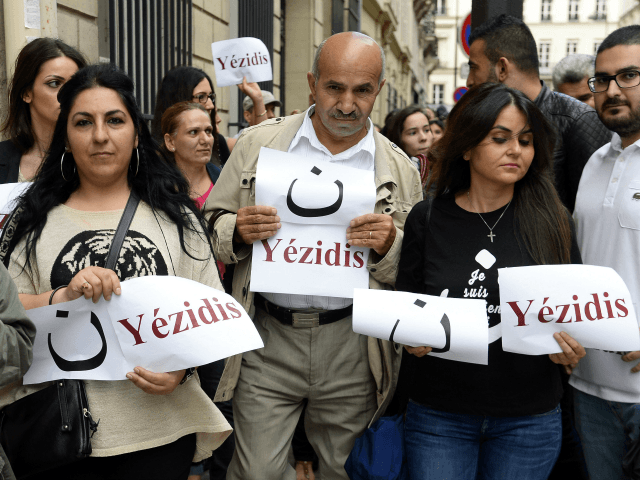A Christian NGO has urged the international community to protect minority populations as Iranian-backed Shia militias and Iraqi army continues to persecute Christians in Peshmerga-controlled areas.
The Suraya Organization for Culture and Media said in a statement that Christians and Yezidi (Ezidi) Kurds were under continued threat from the Iranian-backed militia Hashd al-Shaabi.
“Christian and Ezidi populated villages in Khabur area on the Syrian-Turkish-Iraqi border have been under significant threats of attacks from the Iranian-backed Hashd al-Shaabi in the past days,” the statement said, adding that eight Christian and ten Ezidi villages with a joint population of around 17,000 people reside are being threatened by the Hashd al-Shaabi.
Diliman Abdulkader, a prominent academic on Kurdistan, told Algemeiner that the international community’s support for Kurdish independence will help protect minorities and prevent Iranian interference.
“The biggest contribution the international community could make is to help create a democratic Kurdistan internally. This is what will push back against Iranian influence,” he said. “Kurds should not accept anything less than independence as a goal, but until we solve our disputes internally, it will be very tough.”
The United States and other western powers have so far opposed Kurdish plans for independence, with the State Department claiming they do not recognize the vote for fear that it would distract from the fight to eliminate the Islamic State.
“Christians, Kurds, Yezidis and other minorities in the area fear that Hashd al-Shaabi will be the second ISIS,” Abdelkader said, referring to a coalition of mostly Shiite, Iran-backed militias known in English as the Popular Mobilization Forces (PMF).
According to a report released in June, over half the Christians living in Syria and Iraq have been killed or fled the country since 2011, mainly because of targeted persecution from Islamist groups such as Islamic State.
Kurds voted in a non-binding referendum on independence in September, supporting secession from Iraq by a 92-percent vote, which then-Kurdish President Masoud Barzani said would give him the chance to “start a dialogue with Baghdad.”
However, Iraqi and Iranian-backed forces have since invaded parts of Kurdistan and have taken control of the region’s borders. Last week, an estimated 100,000 people fled the city of Kirkuk as Iraqi Popular Mobilization Forces (PMF) fighters loot, burning houses down, and attacking Kurdish citizens.
This weekend, Barzani announced that he would not seek another electoral term after November amid escalating tensions in the region, lamenting Washington’s lack of support for the Kurdish cause.
“We don’t want bloodshed,” Barzani said.” We want the problems to be resolved through dialogue. But if you intend to wage war, we will choose death and won’t allow our honor to be broken.”
Barzani has ruled the Kurdistan Regional Government (KRG) for over a decade.
Follow Ben Kew on Facebook, Twitter at @ben_kew, or email him at bkew@breitbart.com.

COMMENTS
Please let us know if you're having issues with commenting.